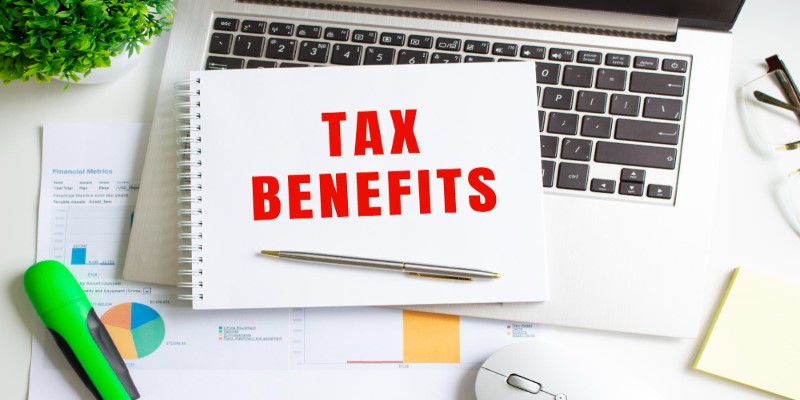How My 401(k) Investments Affect Take Home Pay
Feb 21, 2024 By Triston Martin
Planning for retirement is essential, but many are unsure about how contributing to their 401(k) affects their take home pay. Your 401(k) can be a powerful tool for building a secure financial future, but understanding its impact on your day-to-day finances is key. In this article, we'll delve into the intricacies of investing in your 401(k) and how it influences the money you bring home each paycheck.
From tax savings to employer matches, we'll explore the factors that determine how much of your paycheck goes into your retirement account and offer practical tips for maximizing your savings without sacrificing your current income.
Top of Form
What is a 401(k)?
Before exploring how investing in your 401(k) influences your take-home pay, let's grasp the concept of a 401(k). Essentially, a 401(k) is a retirement savings plan offered by employers. It empowers employees to set aside a portion of their earnings for retirement before taxes are deducted.
These contributions have the potential to grow over time through various investment options like stocks and bonds. In essence, a 401(k) serves as a vehicle for accumulating savings over your career, aiming to secure your financial future during retirement years.
How Does Investing in Your 401(k) Work?
Investing in your 401(k) is like putting money aside from your paycheck to save for retirement. Here's how it works:
Pre-Tax Contributions
When you contribute to your 401(k), you're actually taking a portion of your paycheck before taxes are taken out. This means the money you put into your 401(k) isn't counted as part of your taxable income for that year. For example, if you make $50,000 annually and put $5,000 into your 401(k), you'll only pay taxes on $45,000 of your earnings.
Tax Benefits

By contributing to your 401(k) with pre-tax dollars, you're reducing the amount of income that's subject to taxes. This can lead to lower taxes overall, which leaves you with more money in your pocket. It's like getting a discount on your taxes to save for retirement.
Employer Matching
Many employers sweeten the deal by offering to match a portion of your contributions. For instance, if your employer offers a 50% match on up to 6% of your salary, and you contribute 6% of your salary ($3,000), your employer will chip in an additional $1,500 for free. It's essentially free money that boosts your retirement savings without you having to do anything extra.
Impact on Take Home Pay
Now, let's get to the heart of the matter: how does investing in your 401(k) affect your take home pay? The answer depends on a few key factors:
Contribution Percentage
The amount you contribute to your 401(k) directly impacts your take home pay. The more you contribute, the less money you'll see in your paycheck. However, it's important to remember that these contributions are made before taxes are deducted, so the impact on your take home pay may not be as significant as you think.
Tax Savings
One of the benefits of contributing to a 401(k) is the potential for tax savings. Because your contributions are made with pre-tax dollars, they lower your taxable income for the year. This can result in a lower overall tax bill, which can help offset any decrease in take home pay.
Investment Growth Potential
Another significant impact of contributing to your 401(k) is the potential for your money to grow over time. Funds in your 401(k) are typically invested in various assets like stocks, bonds, and mutual funds, which can earn returns. By investing, you not only save for retirement but also give your money a chance to grow through investment earnings.
Retirement Readiness
Contributing to your 401(k) helps ensure a financially secure retirement. Over the years, your contributions accumulate, building a nest egg to support you in retirement. This alleviates financial stress and provides peace of mind, knowing you're prepared for the future.
Top of Form
Tips for Maximizing Your Take Home Pay and Retirement Savings

While contributing to your 401(k) is important for building a secure retirement, it's also essential to manage your finances in a way that maximizes your take home pay. Here are some tips to help you do just that:
Take Advantage of Employer Matches
If your employer offers a matching contribution, make sure to contribute enough to take full advantage of this benefit. It's like getting free money that can really help grow your retirement savings without cutting into your paycheck too much.
Consider Your Budget
Examine your budget carefully to figure out how much you can add to your 401(k) without hurting your everyday finances. It's crucial to find a middle ground between saving for later and paying for your present needs.
Automate Your Contributions
Automatically contributing to your 401(k) ensures you save for retirement regularly without needing to remember. Plus, it can make it easier to stick to your savings goals, even when other expenses arise.
Review and Adjust Regularly
As your financial situation changes, it's important to review and adjust your 401(k) contributions accordingly. This might mean increasing your contributions as you earn more or decreasing them if you need to free up more money for other expenses.
Track Your Investment Performance
Keep an eye on how your 401(k) investments are doing to make sure they match up with your retirement plans. Reviewing your investment portfolio helps you make smart choices about moving money around or changing contributions according to market trends and your risk tolerance.
Conclusion
Investing in your 401(k) can have a significant impact on your take home pay, but it's a crucial step in building a secure financial future. By understanding how 401(k) contributions work and implementing strategies to maximize your savings while maintaining your current income, you can set yourself up for a comfortable retirement while still enjoying your life today.

Understanding Reverse Mortgage Refinancing
This article explores the concept of refinancing a reverse mortgage in simple terms, explaining the process, benefits, and considerations
Oct 17, 2023 Susan Kelly

Homeownership and Credit Rating – Everything You Need to Know
If you Want to learn about the impact of homeownership and credit score, dive into this article, as it has everything you need to know.
Jan 13, 2024 Triston Martin

What The 2022–2023 Child Tax Credit Is, What It Takes To Qualify, And How To Claim
The Child Tax Credit for 2022–2023 is an income-based subsidy for families with dependent children. Eligible taxpayers might receive a tax credit to offset some of the expenses of having children. Qualified individuals who correctly identify eligible children on their tax return will benefit.
Nov 10, 2023 Triston Martin

Decoding Stash vs. Robinhood: Unveiling the Best Investment Platform for You
Dive into the Stash vs. Robinhood 2023 comparison to discover which investing platform suits you best. Explore their features, fees, and services to make an informed choice in your financial journey.
Dec 14, 2023 Triston Martin

How My 401(k) Investments Affect Take Home Pay
Your total taxable income will be lower because your contributions are deducted before taxes, resulting in a smaller tax bill for you. However, the amount of your take-home income that is decreased will be less than what you contribute.
Feb 21, 2024 Triston Martin

Documents Which I Need To File My Taxes
After you have submitted your tax return, you will most likely not feel the need to maintain all of the information associated with it, including your W-2, 1099s, and other documents.
Dec 18, 2023 Triston Martin